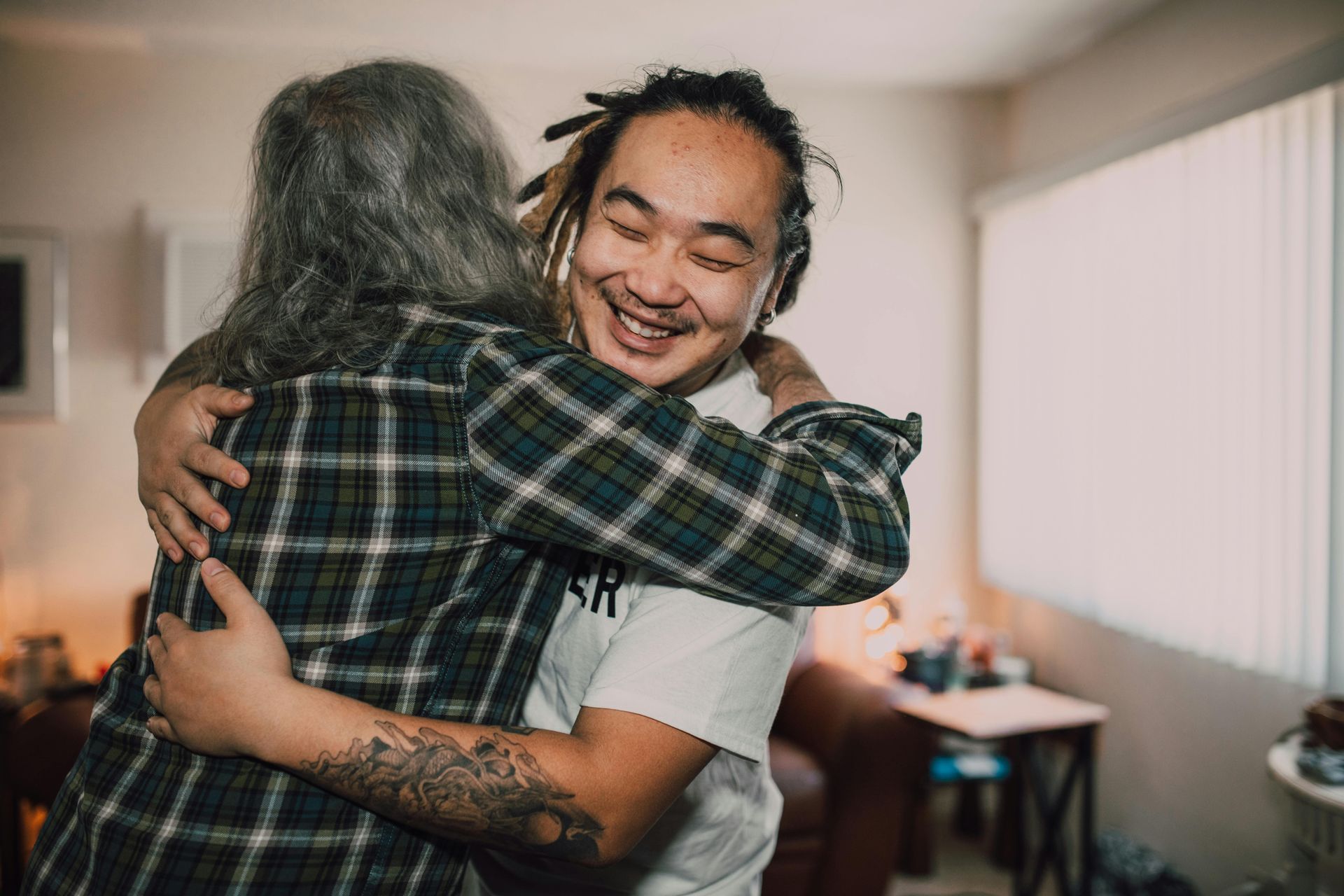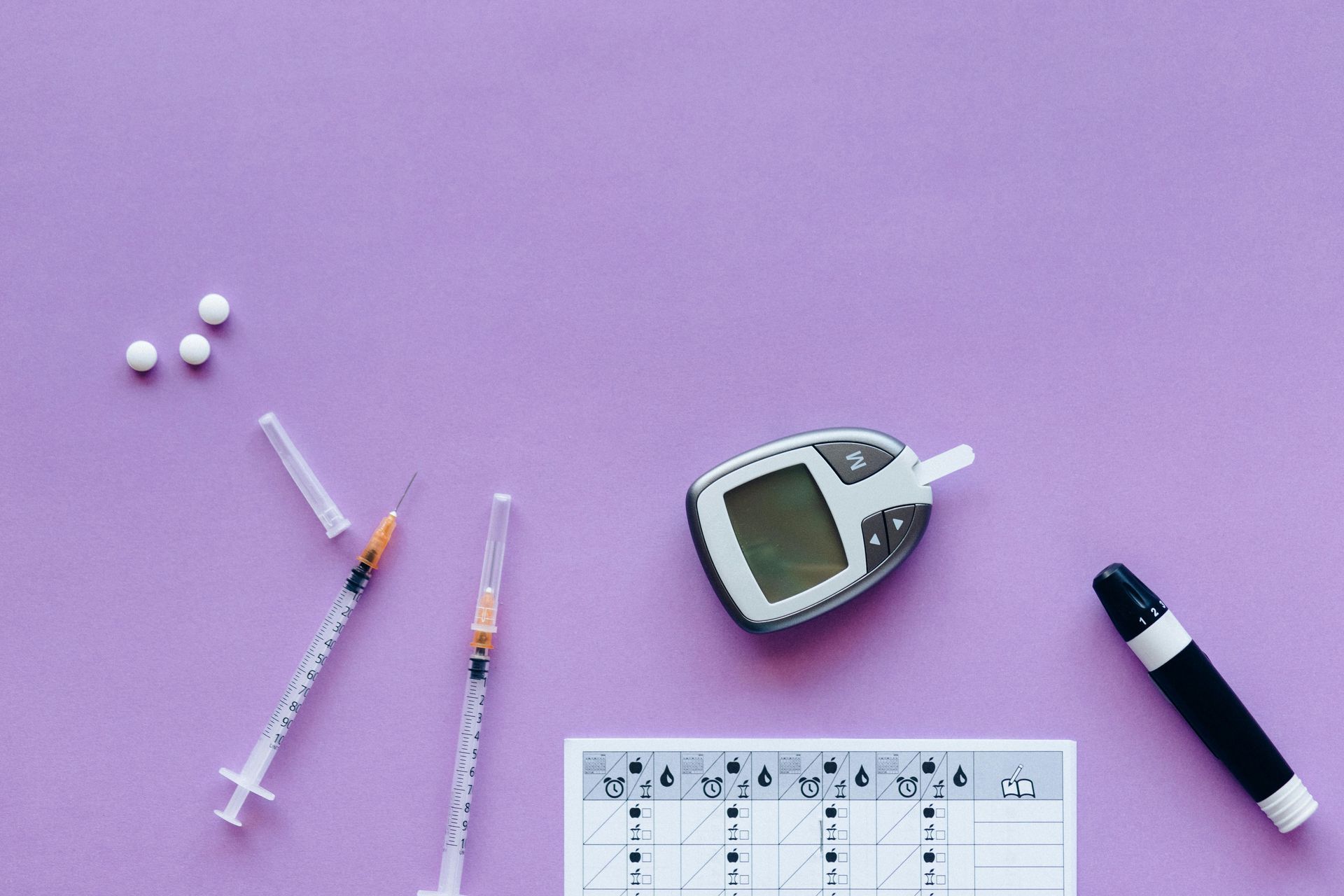How to Cope with a Loved Ones Borderline Personality Disorder
Strategies to Help You Cope with a Loved Ones BPD

Having a deep connection to someone with Borderline Personality Disorder (BPD) can be very challenging, especially if you interact on a frequent basis. BDP is a mental illness where the affected individual experiences intense mood swings, which changes how they view themselves and others. These perceptions can change quickly, can stem from both internal or external factors, and can lead to feelings of extreme closeness or resentment toward others. This ultimately results in unstable relationships and painful emotional cycles, especially with those who are close to this person with the illness.
BDP can seem like an all-consuming condition that entangles itself into an individual’s emotions, behaviors and relationships. For loved ones of people with BPD, you may find that this individual experiences normal behavior one day but switches to a completely different attitude the next day. Their behavior can be irrational and impulsive, making it difficult to predict or understand the choices they make. However, learning ways to cope with your loved one’s BPD can help foster a stronger relationship while supporting their recovery.
- Educate Yourself
Borderline personality disorder is not a simple diagnosis since multiple factors contribute to the condition, which can lead to many misconceptions about what people with BPD experience. Factors based on individual qualities such as history and biology, as well as external experiences such as environmental conditions, all play into the development and persistence of BPD. Educating yourself about the condition, its symptoms, and treatment can help you gain a deeper understanding of what your loved one is experiencing. You can read about the illness online, including reviewing credible sources such as The National Institute of Mental Health , or Centre for Addiction and Mental Health. It may be helpful to contact a mental health professional for direct advice, support and conversation. As well, if you and your loved one are open and in a safe state, simply asking them questions about their thought patterns and experiences may help you both gain better insight while providing support. Taking the steps to learn more about BPD will help to cut through the confusion surrounding the disorder, as well as gain more compassion for your loved one’s struggles while creating a supportive bond.
2. Provide Validation and Compassion
People with BPD experience a range of emotions that can present itself as extreme to someone who does not have the disorder. These intense reactions may appear to be unusual or irrational, resulting in the tendency to calm them down or dismiss their feelings. However, these emotions are extremely real for the person with BPD. They oftentimes cannot control the reactions and intensity, and struggle to uncover their triggers. Therefore, simply being a compassionate listener and providing validation will help your loved one more than you think.
That being said, with the understanding that these reactions are real as well as intense, it is also important to not engage or escalate the situation. If this person presents an angry dialect toward you or an upset attitude, do not take it personally. The emotions are not always controllable and the intensity that they are presented are not always intentional. An effective way to provide validation without agreeing with them would be to mirror back what they tell you. For example, saying to them, “I can see that you’re hurting, I am here for you,” instead of, “Well I don’t know what I can do for you, there is no reason for you to feel this way”. By dismissing their emotions and perspective, it sends the message that they are inadequate and unstable, which can be painful and counterproductive. Listen to them with compassion and respect. Ensuring that your loved one feels heard can go a long way for your relationship, as well as how to cope with the illness.
3. Try to Hold Simple Conversations During Conflict
Depending on their current state, people with BPD have a tendency to distort what you are saying in a way that fits into a narrative they have formulated about you or themselves, sometimes reflecting a bad suspicion. A seemingly harmless statement or supportive deed can be twisted and received as an ill-intentioned act or condescending remark. It can feel like you cannot get through to your loved one with BPD, cannot get anything right or that you are the fault of their struggles because your true intentions are going through a negative filter. However, it is important not to succumb to the hostility and filtered perceptions that your loved one presents. Strong communication skills are key to maintaining a solid relationship. Author of the widely-acknowledged
Stop Walking on Eggshells, Randi Kreger suggests:
“When speaking with [someone with BPD], especially about sensitive issues, remember emotion is likely to be so strong that neither of you can do high-level thinking. Make sentences short, simple, and direct. Leave no room for misinterpretation.”
Simplifying your message while you communicate with your loved one with BPD can help minimize the risk of having your intentions distorted. This strategy will not be perfect and misinterpretation may still occur, but it is a great step in facilitating better communication, as well as providing support for your loved one’s recovery.
4. Encourage Accountability and Responsibility
When someone you love has BPD and they are visibly struggling, there can be a strong tendency to become the caretaker. Wanting to fix something after they break it, or pick them up after they carelessly storm off, are examples of falling into the caretaker role and bailing your loved one out of trouble. However, encouraging responsibility can sometimes be the most loving thing you can provide for this individual. This does not mean abandoning them to cope with their illness without support, yet it does urge you to resist rescuing them from the consequences of their actions. Allowing your loved one to experience natural or self-inflicted consequences can help them to understand that they need help, and to appreciate your efforts in supporting them. As well, it can be a useful tool in how you cope with your loved one’s illness by providing space for you to step back and not take fault in other’s actions. Although it can feel difficult in the beginning, this strategy can be very productive and empowering for you and your loved one’s recovery.
5. Set Boundaries
The practice of setting boundaries can be a difficult one in any relationship, but especially between a loved one you are trying to help. Similar to how counterintuitive it can feel to encourage responsibility and accountability, it can feel just as wrong to establish boundaries with your loved one who has BPD. However, setting and maintaining boundaries are important in creating structure and agency for the both of you. It provides an avenue for accountability, practicing respect and responsibility, as well as shows what you will accept as appropriate behavior. It will be likely that your loved one initially perceives the establishment of boundaries as a sign of rejection, which may lead to conflict. However, sometimes things will get worse before they get better, and being consistent and sound with your boundaries will have profound benefits in your relationship with your loved one.
6. Help Your Loved One in Finding and Participating in Treatment
Oftentimes, people with BPD are reluctant to seek treatment or any external support due to a wide variety of reasons. Some of these include the belief that everyone and everything else is the problem rather than anything having to do with them, the feelings they express are justified based on a narrative they may hold, or having a negative experience with mental health care professionals in the past. There are a number of hurdles that may be holding your loved one back from getting the treatment they need, so being that extra influence by helping them find and maintain treatment will serve a significant amount of support for them.
Therapy is an important factor in a mental health journey, yet it comes in many forms and is not a one size fits all. While taking certain medications, or going for walks, or cultivating a new hobby, can provide significant benefits for some people, will not always support everyone the same. Similarly, talking to a therapist can be very beneficial for one person, but it may not provide the same benefits to others. Having a person to talk to who is non-related or non-biased to the person with BPD, can provide an abundance of help during recovery, so it also be advantageous to find the right therapist for that individual. You do not always have to choose the first therapist that you cross paths with, so be patient and interact with the one that can provide the best support for their BPD recovery. That being said, do not be discouraged when some therapeutic methods are not providing the appropriate effects. Help your loved one maintain consistency during therapy, support them in their search for the right one, and keep them accountable in taking it seriously, not getting pessimistic when progress is not always linear, and getting the most out of it.
Another treatment option that has proven beneficial outcomes for people with BPD are
residential mental health treatment programs. There are numerous centers located across Ontario, so getting to know which one is right for your loved one based on their needs, preferences, and what exactly they are trying to get out of it, will help them significantly on their recovery journey. These centers are a very immersive treatment method, offering temporary residency, as well as personalized curriculum of individual, group and holistic therapies. This program allows your loved one to be regularly monitored, while providing opportunities for them to explore their illness and develop strategies to cope with the onset of emotional and behavioral triggers. The combination between the independence granted from being in residency, being surrounded by like-minded individuals and professionals supporting their recovery, and the intense but supervised therapy treatment with different streams, may yield rapid progress in your loved one’s recovery.
7. Find Support For Yourself
Learning how to cope with BPD can be difficult and uncomfortable, whether you struggle with the illness or not. Oftentimes people with a loved one who has BPD will experience isolation, guilt, shame and fear as they try to navigate the illness, so it is important not to lose sight of yourself and personal needs while you support your loved one’s mental health journey. Take time for yourself to nourish your mind, body and spirit. Seek your own individual therapy and/or connect with support groups for loved ones of people with BPD. Remember that there is only so much you can do, so learn to save yourself too. There are group therapy options as well that can be a great resource for both you and your loved one.
Many of our therapists at CBT Wellness and Virtual Services have experience supporting people with BPD and their loved ones. Reach out today for a free 15 minute consultation with one of our therapists, to see how we can support you!











